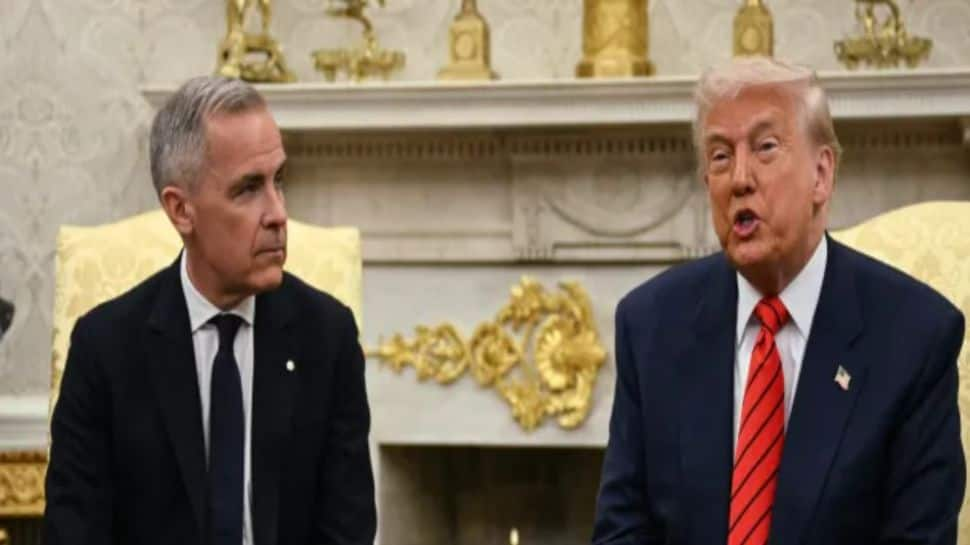Canada’s Digital Tax Just Lit A Fire Under Trump – What’s Behind The Blowup? | World News

New Delhi: US President Donald Trump abruptly froze trade talks with Canada this week because Ottawa plans to begin collecting a digital tax from big technology companies, including American giants like Google, Amazon, Meta and Uber. Trump did not hold back. In a post on his Truth Social platform, he called the tax a “direct and blatant attack on our country”.
He said the United States would respond within days with fresh tariffs on Canadian goods.
The move did not come out of nowhere. Quietly passed in June 2024, the Canadian law charges a 3% levy on digital services revenue earned from Canadian users. It applies to tech companies making over $820 million globally and more than $14.7 million inside Canada.
Here’s what really raised eyebrows – the tax is not only forward-looking but retroactive to January 2022.
That means US firms could be hit with nearly $2 billion in backdated bills. Trump’s response was immediate and loud. “We are terminating all discussions on trade with Canada. They will know the new tariffs they will be paying to do business with the United States within seven days,” he wrote on Friday.
At the White House, Trump doubled down. “We hold all the cards. Canada made a foolish move,” he said.
The United States is Canada’s top trade partner. Over 80% of Canadian exports go south of the border. In 2024, that trade relationship was worth over $762 billion. Any disruption, especially in sectors like energy, minerals and cars, could leave a dent on both sides.
Canadian Prime Minister Mark Carney, who took office just three months ago, now finds himself caught between two fires. At home, business leaders are asking him to drop the tax to avoid economic fallout. Abroad, Trump’s threats are growing louder.
Still, Carney has not blinked. His office said on Friday that Canada “will continue to engage in negotiations in the best interests of Canadian workers and businesses”.
The tax had been in the pipeline since 2019. But Ottawa delayed implementation in hopes of a global deal through the OECD. That deal never came. So Canada went ahead.
Washington sees it differently. Lawmakers from both parties had already warned that this tax would open the door to retaliatory measures. Twenty-one members of the Congress recently urged Trump to push back.
The U.S. president is now doing exactly that. His team says a Section 301 probe is underway to assess how the tax hurts American companies. Such probes can lead to punitive actions like the ones Trump previously used against China and France.
Canada is not alone in targeting big tech’s overseas earnings. France, the United Kingdom, India, Italy, Austria and even Indonesia have rolled out similar taxes. Most charge 2% to 5%. Some, like France’s 3% levy, also stirred backlash from Washington.
The European Union (EU) is watching this drama unfold with unease. Their talks with the United States are nearing a July 9 deadline. If no deal is reached, Trump has said he will hit European exports – cars and steel in particular – with new tariffs up to 50%.
The EU has drawn up a $111 billion list of retaliatory tariffs.
Back in Ottawa, business leaders say Canada is playing a dangerous game. The Business Council of Canada warned this week that the new tax risks a major fallout. “Canada should immediately propose dropping the DST in exchange for lifting US tariffs,” they said.
But Carney seems determined to stick to his path. The first payments are due on Monday. And unless something changes soon, a trade fight may be next.





